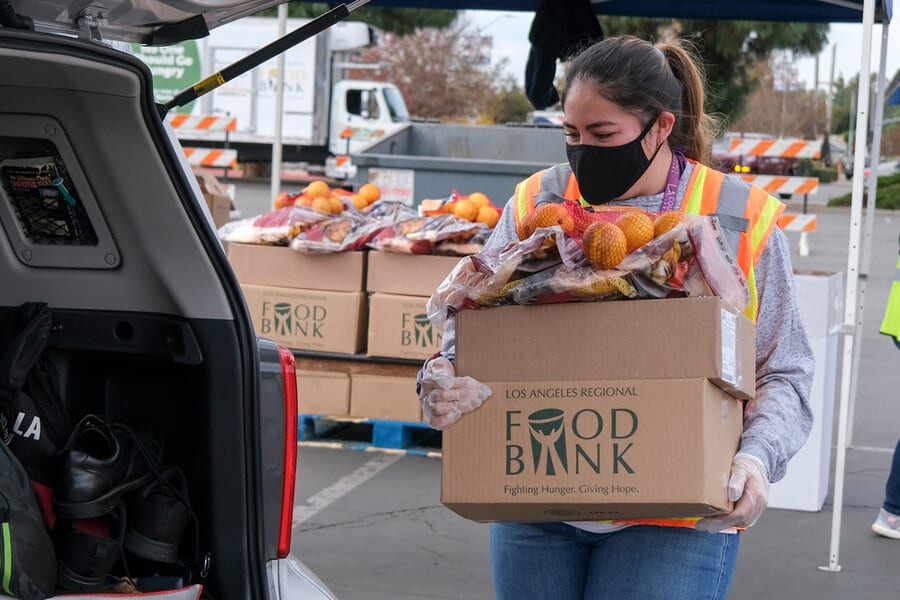

Results-Based Funding
Philanthropy has a critical role to play in measurably improving the lives of those in need. Donor-advised funds (DAFs) in particular, have immense potential to make a positive impact on urgent and entrenched social issues.
DAFs allow donors to make a non-redeemable gift to a fund and take an immediate tax deduction. Donors maintain advisory privileges on future charitable distributions of the funds. In the interim, these funds can be invested by the DAF sponsoring organization so they can grow tax-free.
Since 2010, contributions to donor-advised funds have increased dramatically from $34bn total assets to upwards of $80bn in 2015, and continued to outpace other forms of giving. While overall individual giving increased by 3.8% in 2015, contributions to DAFs increased by 11.4%. Despite this growth, DAFs remain an underutilized source of impact capital as average annual payout rates continue to decrease.
Pay for Success financing (PFS) may provide one path to unlocking DAFs as a source of catalytic impact capital. In a PFS project, private funders such as DAFs provide working capital for a nonprofit service provider to scale needed social services. Should the nonprofit achieve pre-determined levels of social outcomes, government repays funders, commensurate with the level of performance. If the program does not meet these metrics, government does not repay and funders stand to lose part or all of their contribution.
PFS presents an opportunity for DAFs to meet donors’ charitable objectives, with the potential to recycle financial returns for further charitable use. Should the PFS project meet its benchmarks, DAFs have the potential to receive back their initial contribution, and redeploy it in the future. Furthermore, through PFS, donors have access to periodic reporting, grounded in data, detailing how their dollars have contributed towards achieving positive outcomes.
The Massachusetts Pathways to Economic Advancement Pay for Success Project puts DAF capital to work for social impact.

In 2017, Social Finance raised $12.43M in private capital from 40 investors to help 2000 immigrants and refugees progress up the economic ladder in Greater Boston. Through the Massachusetts Pathways to Economic Advancement Pay for Success project, Jewish Vocational Service (JVS) will use the funds to expand access to vocational English language classes, integrated with job search assistance, to assist limited English speakers in making successful transitions to employment, higher wage jobs, and higher education. As outcomes for participants are achieved, the Commonwealth of Massachusetts will repay project funders.
Of the 40 investors, 16 donors participated via DAFs across 4 sponsors: Combined Jewish Philanthropies, the Boston Foundation, ImpactAssets, and Fidelity Charitable. Below we share lessons learned in developing the first Pay for Success project that employs DAF capital:
DAF participation in impact investing is highly donor driven.
DAF sponsors were brought to the table because of specific donors who wanted to stretch their charitable dollars. Some were drawn to the opportunity to bolster their support for a population made more vulnerable in an uncertain political climate. Others saw the opportunity as a place-based way to support cornerstone, evidence-based organizations in the Greater Boston community. Still others saw it as a way to attract new and more diverse sources of working capital to scale — and sustain — needed social services.
Combined Jewish Philanthropies, Greater Boston’s Jewish Federation, for example, has supported JVS since its inception and for many years was its primary source of philanthropic funding. The federation’s partnership with philanthropists includes the CJP Donor Advised Fund program, through which select donors participated in the Massachusetts Pathways project.
“For CJP,” said Charlie Glassenberg, Vice President of Gift Planning and Investment Partnerships, “supporting the Massachusetts Pathways project was a mission-driven activity in support of both our deep, long-standing ties with JVS and our partnership with donors who share our values.”
Targeting specific donors allowed DAF sponsors to meet minimum investment size.
Average grant sizes from DAFs are often small, making it critical to think about which DAF clients to target in order for the DAF sponsor to reach the minimize investment size. Many of the DAF sponsors who facilitated participation in the Massachusetts Pathways project pooled commitments from various donors with known interest in the issue area, target population, service provider, or investment vehicle. For example, to meet a minimum investment size of $100,000, a DAF sponsor could pool commitments from 4 donors, at $25,000 each. This ability to pool commitments was made easier by Social Finance’s diligence on JVS and its programs, putting the weight of a trusted intermediary behind this unique funding opportunity.
The Boston Foundation, Greater Boston’s community foundation, pooled investments from DAFs, alongside the Foundation’s discretionary capital, to participate in the Massachusetts Pathways project.
“Our board members were very enthusiastic about this project because it was so mission-aligned. Many of our board members were already philanthropically connected to the Boston Foundation, so we decided to pool investments from our board members, along with other Boston Foundation DAFs, to facilitate participation alongside the Foundation’s available discretionary resources,” said Daniel Sherman, Director of Donor Services. “It is a win-win — for the Boston Foundation, as an institution, and for our individual donors.”
Different methods of participation were available based on the DAF sponsor’s goals.
Social Finance engaged with DAF sponsors to understand the varying legal, business and tax considerations surrounding their potential participation. DAF sponsors pursued one of two options based on their own assessment: direct investment or a recoverable grant. Given that PFS projects often include various tranches of investment to accommodate potential differences in investor preferences, Social Finance was able to accommodate different approaches to participation in a relatively streamlined way.
ImpactAssets, a nonprofit financial services firm, provided a direct investment in the project through The Giving Fund of Blue Haven Initiative, a single-family office dedicated to informed investing for profit and with purpose.
“ImpactAssets seeks to deploy philanthropic capital across the full spectrum of impact investing”, said Sally Boulter, Senior Engagement Officer. “The Massachusetts Pathways project is exactly the kind of investment we get excited about. It is an innovative model that offers measurable impact and solid financial returns.”“At Blue Haven Initiative, we are excited to help pave the way for donor advised funds to invest more in solutions driven by real evidence,” said Ian Simmons, Co-Founder and Principal of Blue Haven.
Fidelity Charitable provided funds in the form of recoverable grants. With a recoverable grant, the funds are disbursed to Social Finance and then repaid into individual accounts based on the success payments.
“We are constantly looking at innovative ways to enable our donors to use their DAFs in support of the causes they care about. We were delighted to be able to accommodate them in a way that was simple, efficient and effective,” said Sarah Gelfand, Director of Donor Programs at Fidelity Charitable.
A Call to Action
Pay for Success allows DAF donors and sponsors to apply an outcomes-focused lens to their charitable giving. We welcome DAF donors and sponsors alike to engage with us in solving some of society’s biggest challenges. In addition to participating as PFS project funders, here are a few steps DAF donors and sponsors can take to deploy capital for impact:
DAF donors
Articulate your impact preferences. These can vary across issue area, target population, and geography. A variety of PFS resources are available that can facilitate this articulation. Donors with a focus on issue area, for example, may benefit from understanding organizations and interventions with demonstrated impact in that space. Others, focused on geography or target population, can prioritize identifying opportunities to deploy their dollars to fill service gaps in a measurable way.
Define an outcomes-oriented strategy for your giving. Engage your DAF sponsor to define meaningful social or environmental outcomes that reflect your intended theory of change. This can help guide where you employ your philanthropy, as well as how directly you wish to establish a link between your philanthropic contribution and the outcomes they generate.
DAF sponsors
Educate your team about available impact investing resources. While the impact investing field has matured over the past decade, it remains challenging to match products with donor interests, given the wide range on both sides. DAF sponsors can partner with impact investing thought leaders to tap into existing market education opportunities for their staff, and refine their strategy on when, and how, to offer impact products for their donors.
Customize impact product offerings by donor type. Define impact investing strategies for specific segments of your donor base and consider pre-screened investment opportunities, like PFS projects, that meet donor impact criteria and risk appetite.
Related Insight

To Support an Equitable Recovery, Donor-Advised Funds Should Look Beyond Grantmaking
Forthcoming research from Social Finance, conducted with the support of the Rockefeller Foundation, presents the largest-known nationwide survey of DAF donors on impact investing to date.

Increasing Your Impact by Blurring the Lines between Investing and Philanthropy
Social Finance Board Member Laura Lauder and her husband, Gary, reflect on their innovative approach to integrating impact across a portfolio.